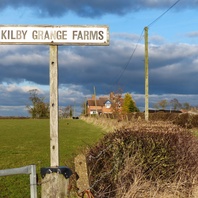
Viking Names
Kilby
Kilby, in the Guthlaxton Hundred of Leicestershire, was probably an Old English compound from Old English cild (cilda genitive plural) ‘a child, a young person, a boy, a son (usually implying noble birth)’ and Old English tun ‘an enclosure; a farmstead; a village; an estate’. The place-name underwent Scandinavianization with the generic tun being replaced with Old Norse by ‘a farmstead, a village’ and the use of an initial Old Norse k for the Old English initial ch.
Read More
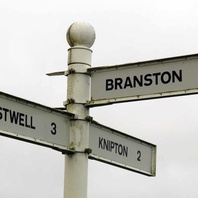
Viking Names
Knipton
Knipton, in the Framland Hundred of Leicestershire, is a Anglo-Scandinavian hybrid from Old Norse gnípa ‘a steep rock or peak’ and Old English tun ‘an enclosure; a farmstead; a village; an estate’. The name is topographically appropriate as the village lies in a narrow valley with hills rising steeply on each side. Pagan Anglian burials here suggest an earlier Old English place-name that was replaced with Scandinavian settlement.
Read More
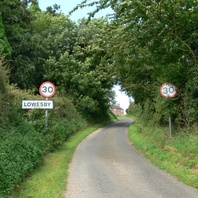
Viking Names
Lowesby
Lowesby, in the East Goscote Hundred of Leicestershire, is a difficult name. The first element possibly comes from the Old Norse male byname Lauss/Lausi ‘loose-living’. Alternatively it has been suggested that the first element could be derived from the postulated Old Norse element lausa ‘a slope’ which is found in Scandinavian place-names in the forms -lösa/-löse; however, this element was no longer used for place-naming by the time of Scandinavian settlement in England. The second element is Old Norse by ‘a farmstead, a village’.
Read More
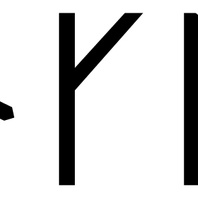
Viking Names
Langlif
In Scandinavia, the female name Langlíf is first recorded from the middle of the twelfth century. It is suggested that it occurs in scattered (and often late-recorded) place-names in England, in North Yorkshire and in Cumberland. Its occurrence in a minor name Leevingrey Furlong in Flintham, Bingham Wapentake, Nottinghamshire, has been disputed. The name also occurs in twelfth- and thirteenth-century documents from Norfolk. The name means ‘long life’ and may originally have been a by-name.
Read More
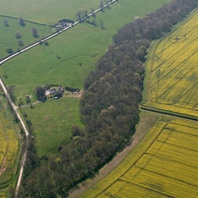
Viking Names
Beesby
Beesby, in the Bradley Haverstoe Wapentake of Lincolnshire, comes from a male personal name Besi and the Old Norse element by ‘a farmstead, a village’. The name Besi, which is recorded for Lincolnshire in Domesday Book, seems to be a Danelaw version of a Scandinavian name recorded in Old Danish as Bøsi. Today the name survives only in Beesby Farm and Beesby Hall, but remains of a deserted medieval village can be seen.
Read More
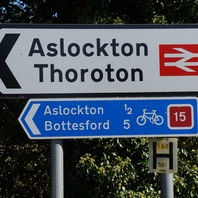
Viking Names
Thoroton
Thoroton, in the Bingham Wapentake of Nottinghamshire, comes from the Old Norse male personal name Þurferð and the Old English element tun ‘farm, settlement’. It is thus a hybrid name, like others nearby, such as Aslockton and Colston Bassett. The Thoroton Society, Nottinghamshire’s principal historical and archaeological society, takes its name from Dr Robert Thoroton who, in 1677, published the first history of the county. He in turn (or rather one of his ancestors) presumably took his name from the village.
Read More
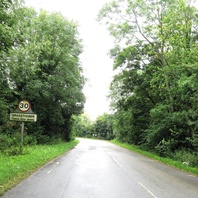
Viking Names
Grassthorpe
Grassthorpe in the Thurgarton Wapentake of Nottinghamshire is an Old Norse compound from gres ‘grass’ (which could also be Old English) and þorp ‘a secondary settlement, a dependent outlying farmstead or hamlet’.
Read More
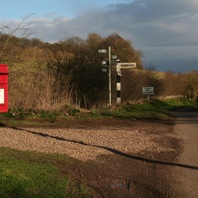
Viking Names
Skendleby
Skendleby, in the South Riding of Lindsey of Lincolnshire, is a name of uncertain origin. The first element is obscure, but is perhaps scenehelde ‘beautiful slope’ from Old English scene ‘bright, beautiful’ and helde ‘slope’. The second element of the place-name is Old Norse by ‘a farmstead, a village’.
Read More
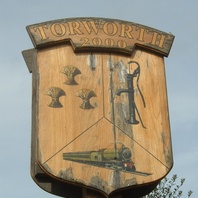
Viking Names
Torworth
Torworth, in the Bassetlaw Wapentake of Nottinghamshire, comes from the Old Norse male personal name Þórðr and the Old English element worð ‘enclosure’.
Read More
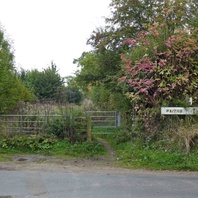
Viking Names
Waithe
Waithe, in the Haverstoe Wapentake of Lincolnshire, is thought to be originally derived from Old English (ge)wæd ‘a ford’. By the later twelfth century, the -d- was replaced by -th- either because of the Scandinavianization of the pronunciation, or by the replacement of (ge)wæd with its Old Norse cognate vað ‘a ford’. In both cases the meaning of the name is ‘at the ford’, which must be over Waithe Beck, where a minor road crosses the stream half a mile east of the church.
Read More
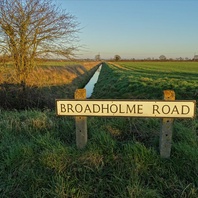
Viking Names
Broadholme
Broadholme, in the West Lindsey district of Lincolnshire, comes from the Old Norse male personal name Broddi and the Old Norse element holmr ‘an island, an inland promontory, raised ground in marsh, a river-meadow’. Hence, ‘Broddi’s island’. Historically, the parish belonged to Newark Wapentake, Nottinghamshire, but was transferred to West Lindsey in 1986 by the Local Government Boundary Commission.
